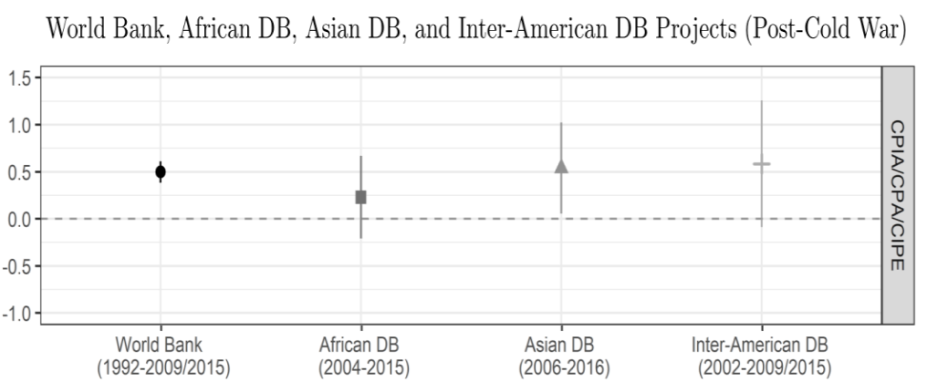Bureaucratic Autonomy and Donor Strategic Interest in Multilateral Foreign Aid
Presented at the Political Economy of International Organizations (PEIO) conference.
This paper re-examines a central claim in the international organizations and foreign aid literatures: that powerful donors’ strategic interests significantly bias decision-making at multilateral institutions. Drawing on historical insights and new data on bureaucratic rules and norms, I argue that internal constraints override donor strategic interest pressures. Analyzing lending decisions, whose multi-year cycles are difficult to manipulate, I find that bureaucratic rules and norms matter more at the World Bank but still explain high variance levels at the regional development banks. Outside the World Bank Board, strategic interests also manifest and modify the effects of bureaucratic factors on lending inconsistently after the Cold War. Replications of other strategic interest studies focusing on shorter-term, non-lending tasks generally hold. By the same token, bureaucratic norms explain these outcomes as well as more variance in them. Overall, multilateral institutions are less captured by powerful countries, including the United States, than prevailing accounts suggest. [Draft Paper]

